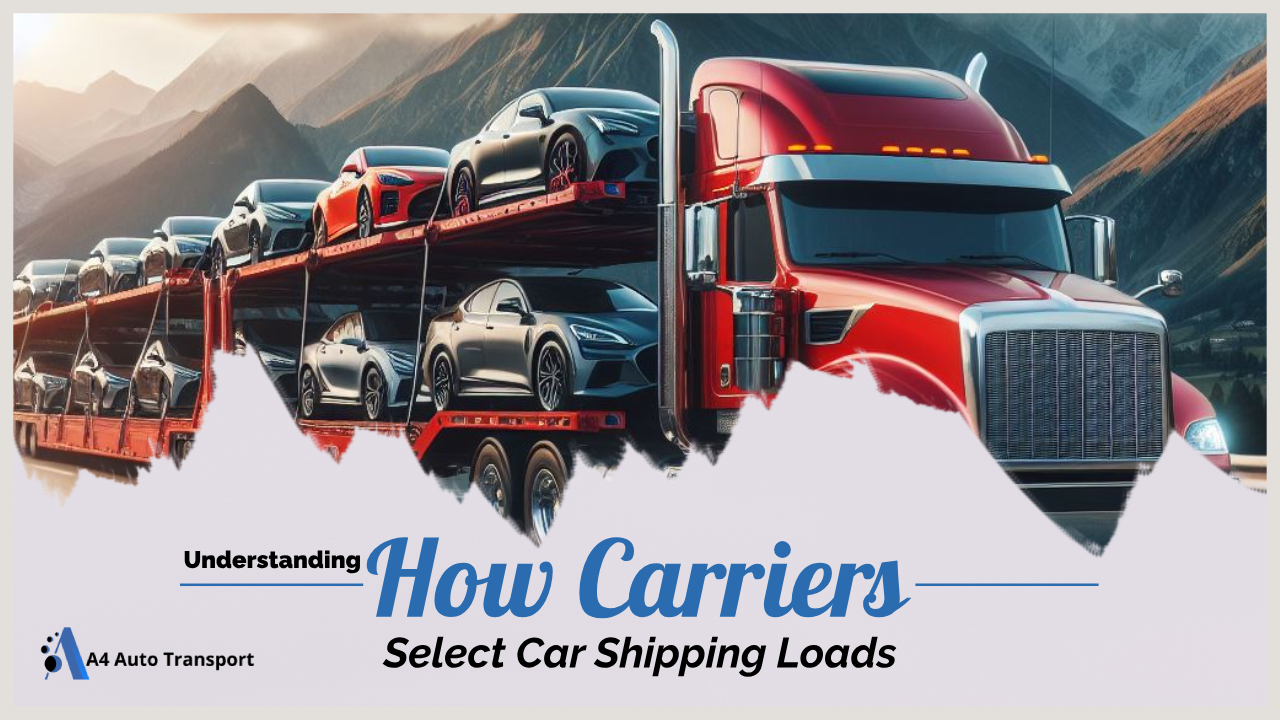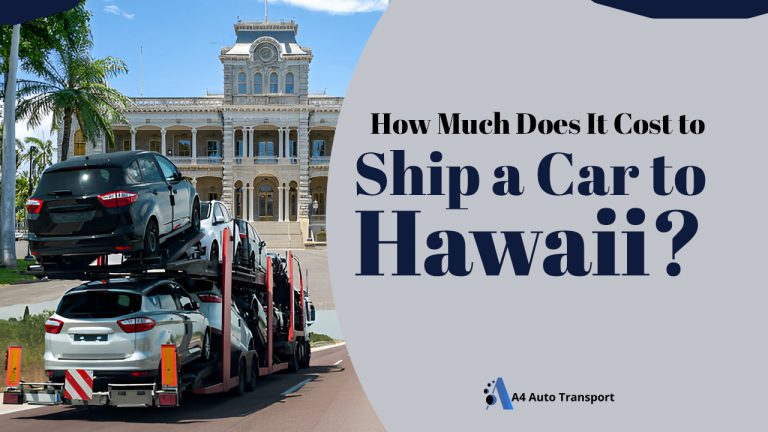Understanding How Carriers Select Car Shipping Loads

How do carriers select car shipping loads? Car shipping is a vital component of the auto transport industry, facilitated by carriers who transport vehicles from one location to another. As a shipper, understanding how carriers select their loads can help you navigate the process more effectively. In this guide, we’ll explore the key factors that influence carriers’ decisions when choosing car shipping loads.
Key Highlights
- Carriers prioritize loads with favorable payment terms, shorter distances, smaller vehicles, accessible locations, and higher seasonal demand.
- Check FMCSA website to verify if a company is a car carrier and access important information.
- Prepare your vehicle, understand insurance coverage, and communicate clearly with the carrier for a smooth shipping experience.
Factors Influencing Car Shipping Loads Selection
Payment and Contract Terms
Carriers prioritize loads with favorable payment and contract terms. This includes factors like pre-payment or guaranteed minimum rates, which reduce financial risks for carriers and ensure fair compensation for their services.
Distance and Delivery Time
The distance between pick-up and delivery locations significantly impacts load selection. Carriers prefer loads with shorter distances and quicker delivery times, allowing them to optimize their routes and increase earnings.
Size and Type of Vehicle
Carriers consider the size and type of vehicles being shipped. Smaller vehicles that require less space and resources are often preferred, as they are easier to handle and transport.
Load and Unloading Locations
Accessibility of loading and unloading locations is crucial for carriers. They prefer locations with easy access, such as loading docks, to minimize loading and unloading times and maximize efficiency.
Seasonal Demand
Seasonal demand fluctuations influence load selection. During peak seasons, carriers may prioritize loads with higher prices, while off-peak seasons may see preferences for lower-cost loads to maintain business continuity.
Identifying Car Carriers
Determining whether a company is a car carrier or an auto transport company can be done by checking their profile on the Federal Motor Carrier Safety Administration (FMCSA) website. This provides information about the company’s nature and credentials.
Conclusion
Understanding how carriers select car shipping loads is essential for shippers to attract reliable carriers and ensure efficient transportation. By aligning with carrier preferences and industry trends, shippers can enhance their shipping strategies. Reputable companies facilitate transparent connections between customers and carriers, ensuring a smooth shipping process.
FAQs
How do I prepare my vehicle for shipping?
- Before shipping your vehicle, ensure it’s clean and empty of personal belongings.
- Disable any alarms and provide spare keys to the carrier.
- Document any existing damage with photos and keep a copy for your records.
How long does car shipping usually take?
- The duration of car shipping varies depending on factors like distance, route, and carrier schedule.
- Generally, coast-to-coast shipments take 1-2 weeks, while shorter distances may take a few days.
Is my vehicle insured during transportation?
- Most reputable carriers provide insurance coverage for vehicles during transit.
- Ensure you understand the extent of coverage and consider additional insurance if needed.
Can I ship non-operational vehicles?
- Yes, many carriers offer services for non-operational vehicles, but additional fees may apply.
- Inform the carrier about the condition of your vehicle to ensure proper arrangements are made.
What should I do if there are delays or issues with my shipment?
- Contact your shipping company or carrier immediately to address any delays or issues.
- Maintain open communication and follow up regularly for updates on the status of your shipment.
a4AutoTransport is a group of auto transport researchers and experts that comes in handy for anyone who wants to move their car/vehicle without putting extra miles on the odometer. At a4AutoTransport, We researched over a hundred car shipping companies, interviewed real customers and industry leaders, and collected nearly 500 quotes to find the nation’s best auto transport companies. With our combined 5 years of industry experience and research, we’ll help you find the right car shipper for your budget.






